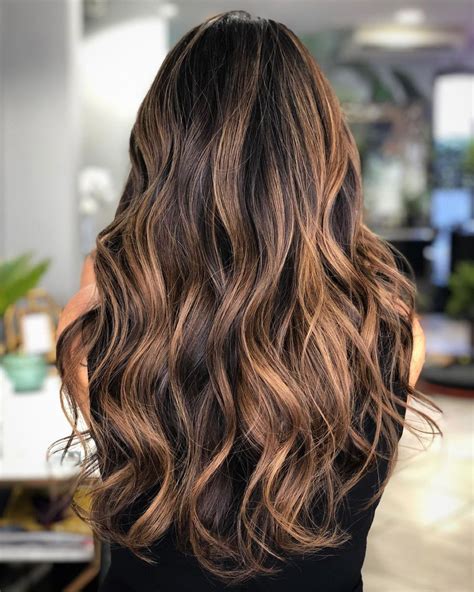Learn about genetic predisposition, poor diet, stress, hormonal imbalances, and overuse of hair products affecting hair health in our latest blog post.
Genetic predisposition
Contents
When it comes to understanding why our hair falls out, one of the major factors to consider is genetic predisposition. This means that if your parents or other family members have experienced hair loss, you may be more likely to experience it as well. While we can’t change our genetics, being aware of this predisposition can help us take proactive steps to prevent excessive hair loss.
For those with a family history of hair loss, it’s important to pay close attention to the health of our scalp and hair. Additionally, incorporating nutrient-rich foods into our diet, such as leafy greens, nuts, and eggs, can help support overall hair health and minimize the impact of genetic predisposition.
The impact of genetic predisposition on hair loss shouldn’t be a cause for panic, but rather a motivator to take good care of our hair and scalp. By being mindful of this predisposition, we can make informed decisions about our hair care routine and seek professional advice if needed.
Poor diet and nutrition
One of the major red flags to consider when dealing with hair loss is poor diet and nutrition. Diet plays a crucial role in the health of our hair. Hair is primarily made up of protein, which is why a poor diet lacking in essential nutrients can lead to hair loss and thinning. When we do not consume enough protein, vitamins, and minerals, our hair can become weak and brittle, making it more prone to breakage and shedding.
For optimal hair health, it’s important to incorporate a balanced diet that includes protein-rich foods such as eggs, fish, and lean meats. Additionally, vitamins such as biotin, vitamin C, and iron are essential for promoting hair growth and preventing hair loss. Low levels of these nutrients in the body can result in weakened hair and slower hair growth.
In contrast, a diet high in processed and sugary foods can have a negative impact on hair health. High sugar consumption can lead to inflammation, which can disrupt normal hair growth cycles and contribute to hair thinning and loss. It’s important to be mindful of the foods we consume and their potential impact on the health of our hair.
Overall, maintaining a balanced and nutritious diet is crucial for promoting healthy hair growth and preventing hair loss. By ensuring that we are consuming an adequate amount of essential nutrients, we can support the overall health of our hair and minimize the risk of experiencing excessive hair shedding and thinning.
Stress and anxiety levels
One of the major red flags to consider when experiencing hair loss is high levels of stress and anxiety. When the body is under immense stress, it can impact the hair growth cycle, leading to excessive shedding. Chronic stress can also trigger trichotillomania, a condition where individuals pull out their hair as a coping mechanism for stress and anxiety.
Furthermore, the release of stress hormones such as cortisol can disrupt the normal functioning of hair follicles, leading to weakened hair and ultimately hair loss. It’s important to address sources of stress and anxiety through relaxation techniques, therapy, or seeking professional help when necessary to prevent further hair loss.
In addition, high levels of stress can contribute to poor lifestyle choices such as unhealthy diet, lack of sleep, and insufficient exercise, all of which directly impact hair health. This can create a vicious cycle where stress leads to hair loss, and hair loss in turn causes more stress and anxiety.
Therefore, it’s crucial to recognize the impact of stress and anxiety on hair health and take proactive steps to manage and reduce stress levels in order to maintain a healthy head of hair.
Hormonal imbalances and changes
Hormonal imbalances and changes can have a significant impact on hair health and can often lead to hair loss. Hormones play a crucial role in regulating the hair growth cycle, and any disruption can result in excessive shedding and thinning of hair.
One common hormonal imbalance that can contribute to hair loss is hypothyroidism, where the thyroid gland does not produce enough hormones. This can lead to a variety of symptoms, including hair loss. In addition, hormonal changes during pregnancy and menopause can also cause hair to fall out more than usual.
It’s important to consult a healthcare professional if you suspect that hormonal imbalances may be contributing to your hair loss. They can perform tests to determine if there are any underlying hormonal issues that need to be addressed.
In some cases, medication or hormone replacement therapy may be necessary to regulate hormone levels and prevent further hair loss. Additionally, focusing on stress management and incorporating nutrient-rich foods into your diet can also help support hormonal balance and promote healthy hair growth.
Overuse of hair products
Overuse of hair products can have a detrimental effect on the health of your hair. From gels and mousses to hairsprays and serums, using too many styling products can lead to buildup on the scalp and hair strands. This buildup can clog pores, suffocate the hair follicles, and ultimately lead to hair loss.
Additionally, many hair products contain harsh chemicals and ingredients that can strip the hair of its natural oils, leading to dryness, breakage, and thinning. It’s important to read the labels of hair products and choose those that are free of sulfates, parabens, and other harmful additives.
Furthermore, overuse of heat styling tools such as flat irons, curling irons, and blow dryers can also contribute to hair damage and loss. The excessive heat can weaken the hair shaft and cause it to become brittle and prone to breakage.
To maintain the health of your hair, it’s crucial to use hair products in moderation and incorporate regular deep conditioning treatments to replenish moisture and nourishment.











